By Paul Markel
Just like clockwork, when people who don’t own or carry guns are faced with the reality that we live in a dangerous, uncertain world, they look to their “gun friends” for advice. Sometimes this is a personal situation. They’ve been robbed, assaulted, threatened, etc. and they seek out advice from someone they know who owns guns.
As often as not, what will inspire the non-gun owning/carrying people to seek out advice is a national or world crisis. Witness the gun sales during the Covid panic. Now, we have the threat of not one, but two conflicts/wars into which the US Government is driving us.
People saw the carnage that went on in Israel where the country’s IDF and security forces were too little and too late to prevent the horrible deaths of well over a thousand unarmed citizens, a good portion of them elderly, women, and children. Americans rightly question whether that could just as easily happen here in a local shopping mall, church, or school. The natural reaction is for the unarmed to go to their gun-owning friends for advice.
During this piece we’ll set some ground rules for you, the one who’s being asked for advice, so that you can give these people some sound, practical, good counsel.
Keep in mind, this is deadly serious business. Your neighbor isn’t coming to you asking for a chicken soup recipe or tips on how to improve their golf swing. Bad advice regarding self-defense or carrying a gun can lead to good people making poor decisions or getting hurt. We need to address this topic with that in mind.
1 – Ask Thoughtful Questions
If you should find yourself in a position where people are coming to you for “gun advice,” that can be an ego boost. You’ve been a gun person your whole life and now your neighbor Jim has come to you wanting to know which gun he should buy to protect his family.
The first thing you should do before you offer any advice is to take a deep breath, park your ego, and ask a few of questions to the person seeking your counsel.
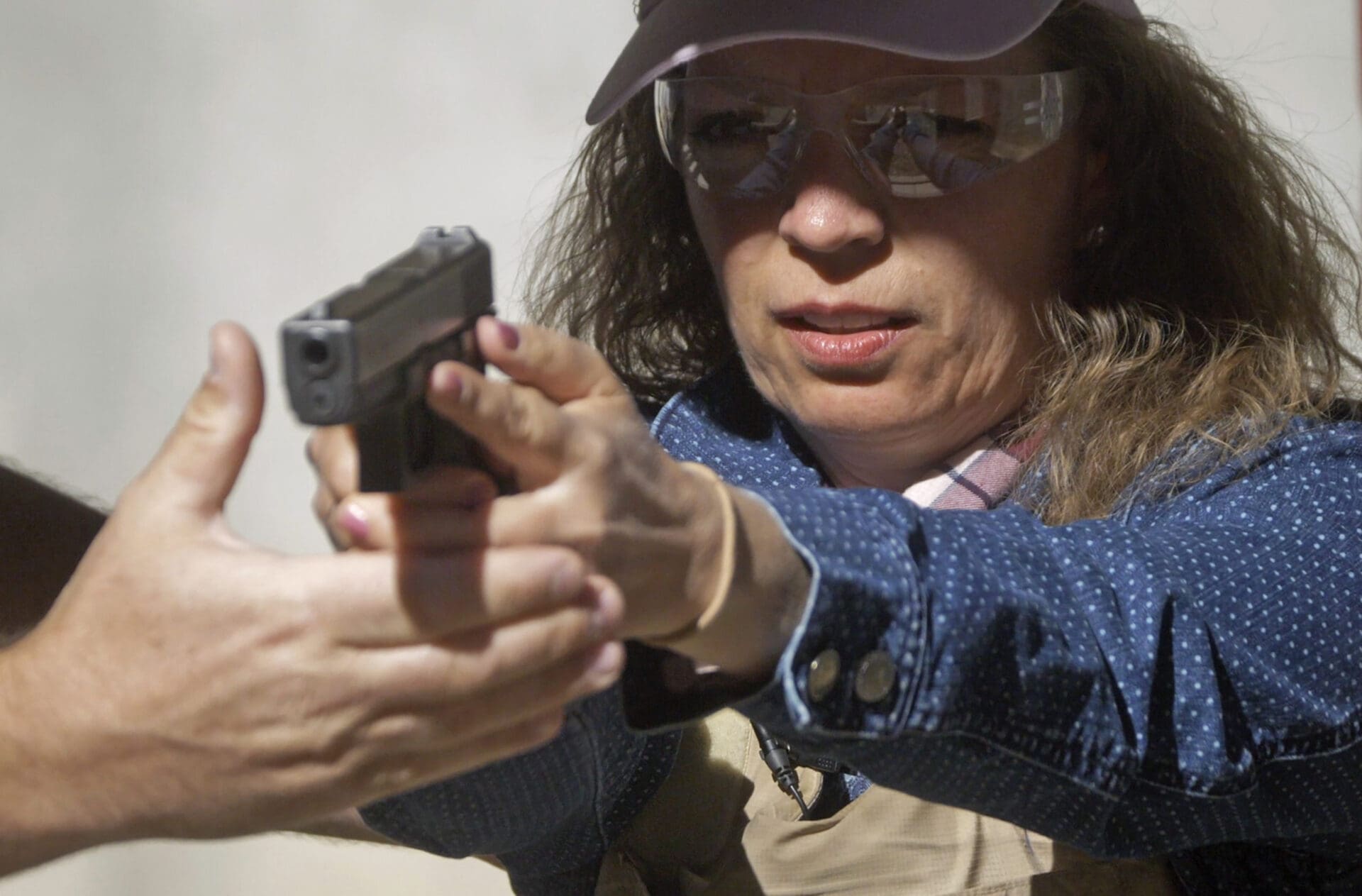
Question Number One: How did you come to the point where you decided that you need to own/carry a gun? What happened?
Question Number Two: What are you planning to do with the gun? As in, will they keep it in the house for home defense or carry it on their person, à la concealed carry.
Question Number Three: Are you willing or prepared to spend the money to attend a formal training school so as to have the genuine skill and confidence required?
2 – Listen
Yes, actually listen to the answers to the previous questions. Far too often, the typical gun guy will be asked what gun he would buy for home defense…and he’s off to the races, going on at length pontificating about his favorite blaster.
Stop yourself from doing that.
Listen deliberately to the answers the person gives you to the above questions. What they say will tell you a lot about where their mindset is at the moment. For instance, if someone says that they “don’t want to waste time and money on training” that’s a dangerous mindset. As in, they’re going to hurt themselves or someone else sooner or later.
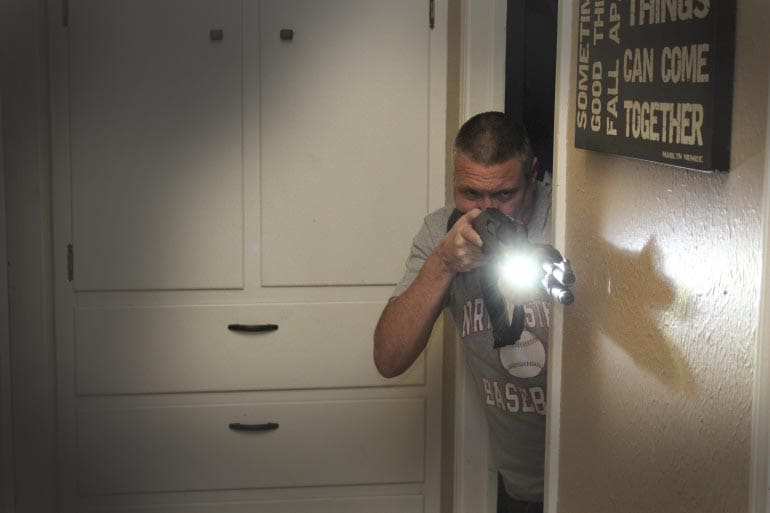
If the person says they just want to keep a gun in the house “just in case,” then they certainly don’t need a sub-compact pistol. If the gun will never be carried outside the home, they don’t need a handgun at all and they would be better served by a long gun of some sort.
3 – Offer Thoughtful Advice
Keep in mind, the advice you give is for them. I know that sounds obvious, but I’ve stood in gun stores and listened while the guy behind the counter gave advice that was ill-suited for the recipient.
For example, I heard a woman tell the guy behind the counter she wanted a gun for home defense. He asked her if she had any experience, to which she replied that her father was a State Trooper and she had fired his service revolver on several occasions.
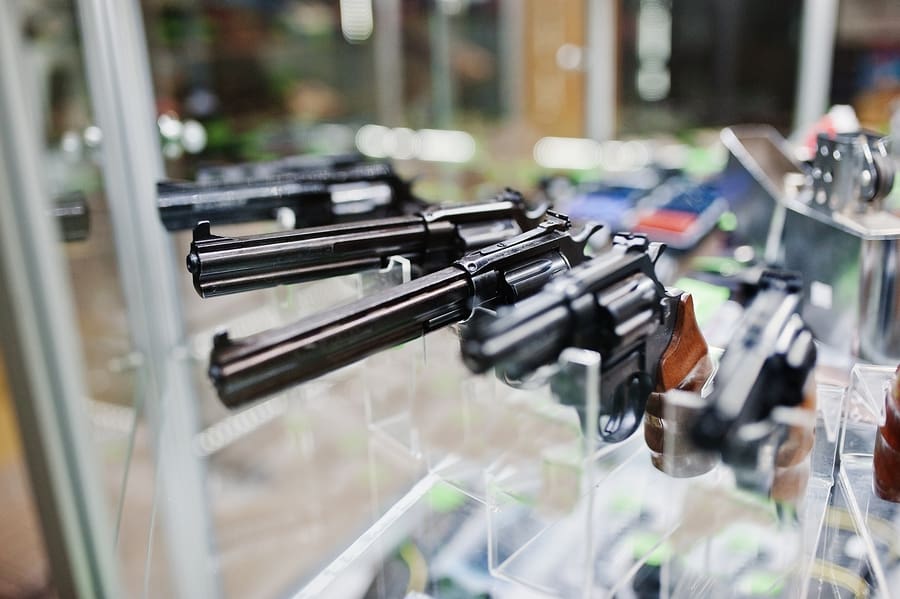
Rather than steering her toward a full-sized handgun for home defense, the guy behind the counter moved her down to the compact revolver area of the counter and tried to sell her one of those. I’m guessing his commission on a Smith & Wesson J-frame must have been considerable.
I kept my mouth shut and when she walked away from the counter, I offered her my two cents. I expressed that if she wanted a home defense gun and was comfortable with the kind of gun her dad had, go in that direction.
4 – Be Honest
I know the assertion, “be honest” may seem insulting to some. However, ego can be quite a potent drug. If your friend/neighbor/whomever asks you a question for which you don’t have a solid answer, don’t be afraid to say, “I don’t know, but we can find out.”
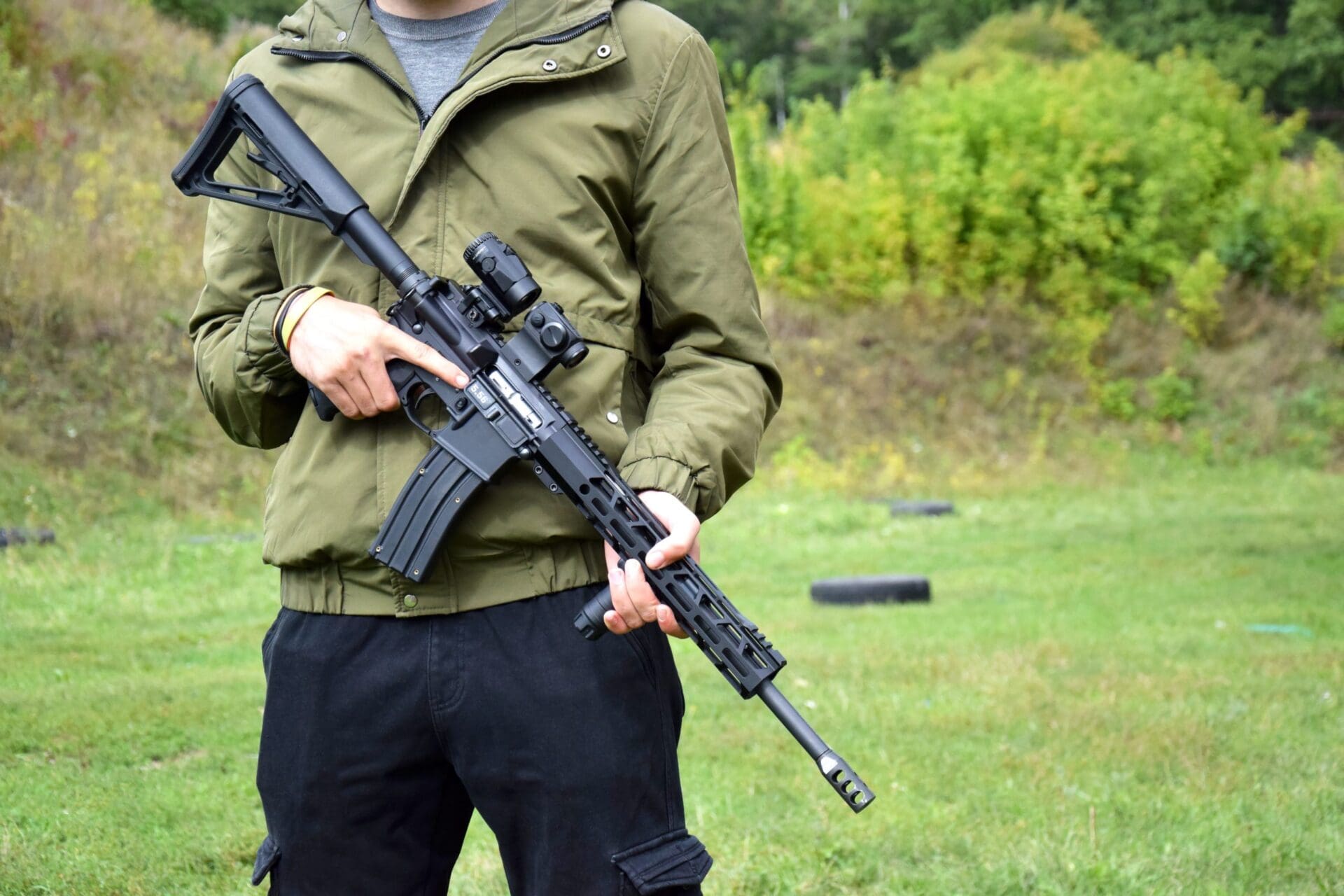
I don’t want to seem melodramatic, but you’re potentially in a position where the advice you give could save the person’s life or the lives of their family members. At the same time, if you give them poor advice or advice that doesn’t address their genuine concerns, you could be setting them up for failure.
If you don’t or never have carried a gun concealed every day, you really aren’t in a good position to give a person advice for the best concealed carry gun or best holster to buy. Be honest, don’t bullsh!t them just because you feel like you need to have an answer.
Sometimes when people ask us questions for which we do not have the answer, we have a wonderful opportunity to increase our own knowledge base and learn. Instructors encounter this quite often. Good instructors will respond, “That is an interesting question. You’re the first person to ask me that. Let’s see if we can figure out the answer together.” Don’t be afraid to do that.
Paul G. Markel is the founder of Student the Gun University and has been teaching Small Arms & Tactics to military personnel, police officers, and citizens for over three decades. He is the author of numerous books and is a combat decorated United States Marine veteran

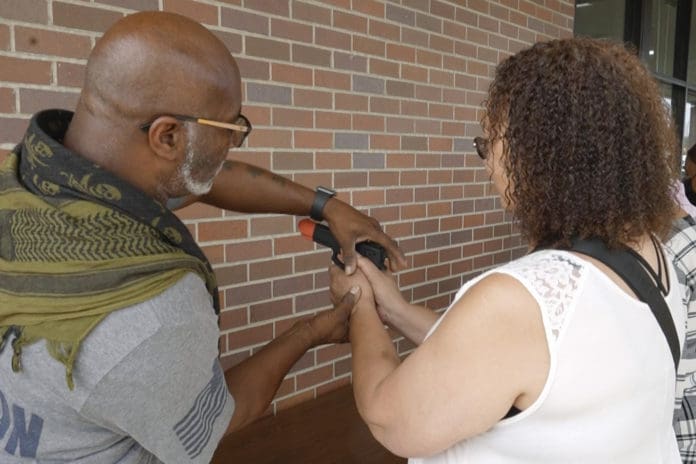



1) shoot through doors
2) fire from balconys
3) .223 is for deer wearing kevlar vests
4) just get an F-15
Nailed it
Mr. President! Mr. President!
Sid from My New Now.
You said (and I quote) “if you want to protect yourself, just buy a double barrel shotgun.” (unquote).
Question: over and under or side by side?
Had my furnace fixed today. My furnace guy was talking about how bad the world was. Asked him if he had a gun(his uncle is a good friend). No was the answer. He knew I was more or less his uncle’s “gun guru”. Oh well🙄
When I was teaching CCW classes I used to bring a variety of handguns from my battery for the students to try at the end of the class. It would include the usual as well as a few esoteric handguns. Many students found what they owned was not what they shot best. Those that I had to provide a “loaner” went to the LGS with at least an idea of what they liked and suited their particular needs.
Knew a few instructors that would do that as well as bring a bunch of the blue dummy guns they didn’t have just for getting the grip/feel of other options. Was how I found out the Glock 20/21/40/41 grip fit me better than the 19.
Jesus Harold Christ, wtf you asking me when Our president gave you all the answers.
That’s Jesus Tap Dancing Christ, you heathen.
I’ll add another thought. In my experience most people do best with medium frame handguns in medium calibers. Regardless of action type.
Based on minimal actual experience and a large dose of intuition, I agree.
I also like steering people (who in reality will probably not get any training) toward medium frame revolvers.
And, as Gadsden Flag indicated, go with “medium” calibers. I personally like .38 Special for newbies who will not spend much (if any) time training. First of all, .38 Special ammunition is available pretty much everywhere. Second, proper bullet selection in .38 Special is as effective as any handgun platform short of going to huge calibers and/or Magnum loads. Third, recoil and muzzle flip will be relatively mild and controllable.
For reference my notion of “proper bullet selection” in .38 Special means full-house propellant loads with 148-grain or 150-grain full wadcutters, or 158-grain semi-wadcutter hollowpoints (a.k.a. “FBI load”). Both of those should have muzzle velocities of at least 850 feet-per-second which, in tandem with the bullet weight, sectional density, and construction, should produce acceptable width and depth of wound channels.
And even if someone cannot source 148-grain full wadcutters or 158-grain semi-wadcutter hollowpoints, they WILL be able to find 125-grain semi-jacketed hollowpoints which are a reasonable second choice (although I would go with .38 Special +P in that case).
Summary: for people who will most likely not train, it doesn’t get much simpler than steering them to a medium frame revolver chambered in .38 Special / .38 Special +P and telling them to get 148-grain full wadcutters, 158 grain semi-wadcutter hollowpoints, or 125 grain semi-jacketed hollowpoints (in +P preferrably).
During the George F(e)lo(n)yd riots, a neighbor asked me if he could borrow a handgun and ammo in case SHTF, and knowing he had been something of a closet anti, I asked him if they started my house on fire if I could borrow one of his cars to put in my garage. In answer to his question of why I’d want to do that I said ” It’s always nice to have someone else to share the liability with. I don’t have a working fire extinguisher. ”
I sent him home with 2 boxes of Hornady Coyote 12ga. shells for the shotgun I know his son hides from his wife there.
Seriously, the correct time to prepare for an emergency is BEFORE it happens.
For Pete’s sake, I think we all know the correct advice is “1911.”
in .45ACP as John Moses by God Browning intended.
Amen. Any other answer is heresy.
napresto, many years ago I would have agreed with you. Do not misunderstand. I carried a 1911 in harms’s way for most of my adult life. There are some it doesn’t work for. There are alternatives for those. Don’t disparage them. Unless they’re buying shit. All you can do then is try to educate them.
a.45 is seldom a good choice for a beginner….
I was about to say something regarding a full sized heavier all steel frame that would mitigate the recoil but that would just support your point for beginners who are not as strong. Shame 380 isn’t substantially cheaper than 9mm or in as many full sized to compact options.
And you can highly suspect that it would -never- get cleaned.
Too complicated for most.
I’m referring to the 1911 suggestion.
I don’t ask “why” the inquire is asking about firearms, instead, the general question is, “What will you use it for?”; I don’t care why.
If the inquirer intends to use a firearm for self-protection, I ask, “Are you absolutely certain that you can with the idea and outcomes of taking the life, instantly, of another human being bent on trying to kill you, or immediate family member. In one case, I asked a parent with a an ex-con wild child if the future gun owner could kill their own offspring in a deadly attack by that wild child.
My interest is in protecting the potential gun owner from his/her/its from a deadly mistake, and the personal and financial costs from self-defense by use of a firearm. It seems prudent to “scare-off” those of wavering confidence, lest they set themselves up for catastrophe.
Talk of training, weapon selection, and financial risk can all be addressed after the first two questions are evaluated.
Yahtzee… If they don’t have the mindset to use a firearm in self defense. Having one will do them more harm than good. The firearm left in a sock drawer, is just an opportunity for a criminal to steal it.
“The firearm left in a sock drawer, is just an opportunity for a criminal to steal it.”
It is the hesitant gun owner most likely to have their gat taken from them and killed with it.
“I don’t ask “why” the inquire is asking about firearms…”
I don’t, either. My position brings a lot of people to me concerning firearms and I wouldn’t insult them by asking why they would choose to exercise a Constitutional right, provided by our Creator.
When approached, usually by a friend or colleague of some sort, I will take them to the range and introduce them to several examples of firearms in which they are interested or would fulfill their proposed needs and allow them to shoot after a fairly rigorous, yet simple introduction to firearms in general. I provide the firearms, ammo, ear/eye protection, targets, and the range, as well as control the loading, unloading, safety protocols etc. Should they decide to purchase I help then find a dealer and then take them back out to the range to learn to use their firearm.
The reason one may consider joining the gun owner ranks is no more my business than that of the (n)ever-benevolent government. I start from the position that the person asking me is intelligent enough to figure that part out on their own.
If they don’t want to buy what I’m trying to sell them, they’re bad people. Uh, no.
People have taught themselves astronomy, law, surgery, how to build and fly airplanes, etc. – and many did so before technology made nearly all the world’s information accessible from our livingrooms. Essentially by definition, every truly original invention or scientific discovery was the product of someone who learned on his own.
The real “dangerous mindset” is the idea that armed self defense is that One Unique Thing that can only be learned in schools – most particularly since, in the days when gunfights were common, professional training schools were not.
Majority of what I learned was independent study until intermediate rifles, belt feds, and shotguns get involved. If one is disciplined they can learn a lot through study and practice. They can also learn it a lot faster with competent instruction. But yes the hell with mandatory classes.
That “competent” caveat is the rub. It’s not just shooting competence, but also “knowing the training objectives [which are almost certainly different than wherever you learned to shoot]” competence, “knowing how to talk to people who aren’t your little bootcamps” competence, “safe and effective vs. my personal opinions” competence, etc.
Funny how that works……or doesn’t and may not be involved at all in mandatory classes but is the norm for optional ones that succeed financially.
Many succeed based either on government contracts, or their founders’ reputation from something other than EDC / home defense.
Been through a few of both, the latter was way better run for everything but the m240 course but that was run by an instructor that was an absolute nerd for the weapon.
That 240 course sounds like an amazing experience! I always liked them, although I’m sure part of that was due to the pintle mount.
if you can hit someone at six feet…[minimal distance]…that’s probably good enough…many people carry guns solely for their own protection and hope they’ll never have to use it….often the cheapest is the choice…
When someone asks me should they get a firearm I always reply don’t get just one.
Eh unless they are young I tend to go with a while ago when they were cheap but what do you think you need for what you want?
“they’re going to hurt themselves or someone else sooner or later.”
That is not at all a given, even though training is a very good idea. Most people who have guns apparently don’t have formal training, and most never hurt anyone. I wanna see your stats on that claim.
Do they plan to practice regularly?
I steer first time owners that don’t plan to shoot a lot towards revolvers as they are easy to load and check with no way to misplace the magazine.
Put it in a drawer and in 40 years time that dusty old thing will still work.
Pretty good article with good advice and ‘most’ of the comments were as well. That being said, IMHO the absolute first question that should be asked is ‘could you shoot someone?’ If they cannot honestly answer yes to that question then they should not have a gun so all of the good advice is moot. Then the discussion can be directed to other means of defending self/family (obviously less effective) but still better than nothing. BTDT.
To me, the mind-set of being capable of killing another human being (under the right circumstances) is the most important aspect of being armed. If you don’t have that ‘will to kill’, then a gun won’t do you (or your family) any good. That must be decided by you BEFORE you ever get a gun. A deadly threat can come in an instant. You won’t have time to ponder the moral question of using deadly force to protect yourself or others. Once you confirm that you can, then find a gun that you are comfortable handling, shooting and possibly carrying. That will depend upon your individual circumstances, local laws, environment, and family situation. Attain proficiency with it through live firing and reloading drills. If you have a family, include them in discussions of having a gun in the house or on your person and what to do (or not do) if a threat happens. Possessing a gun is a big responsibility, you have an obligation to know how to use it responsibly if needed.
My usual response, being a rifle and pistol instructor, and a Chief Range Safety Officer is, if you are thinking about purchasing a firearm, let’s go to the range together, talk about what you want to do and go from there.
Our valentine day jackets sale fashion expertise is on a precise detailing with the perfect blend for creative flair.